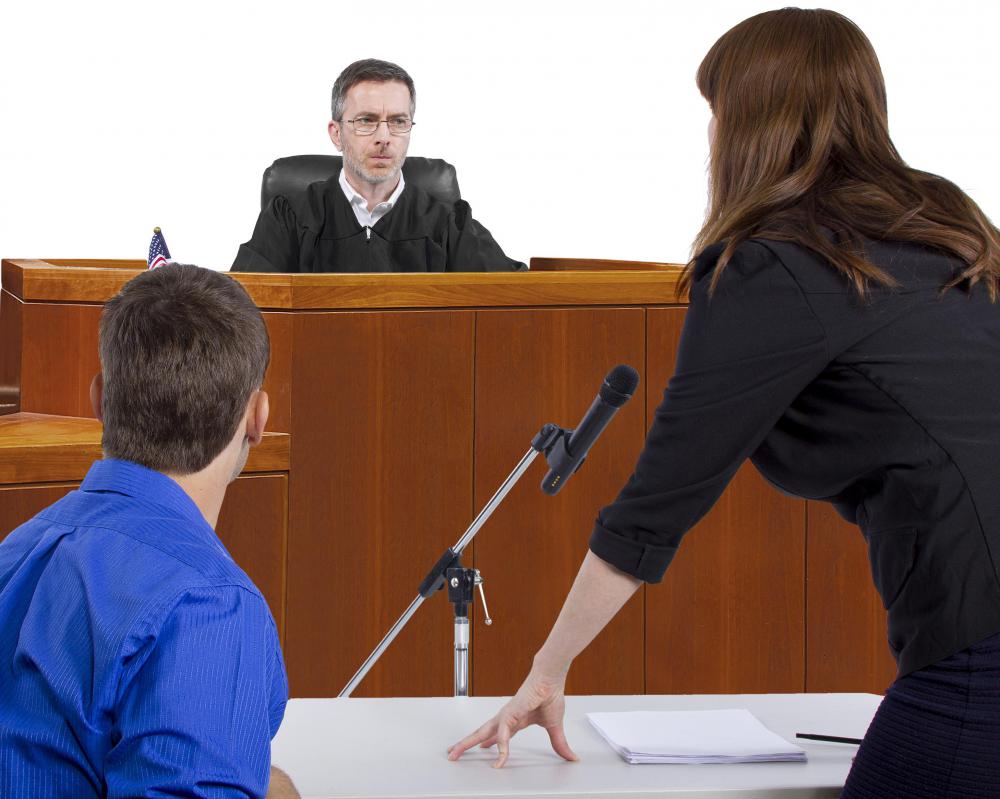At WiseGEEK, we're committed to delivering accurate, trustworthy information. Our expert-authored content is rigorously fact-checked and sourced from credible authorities. Discover how we uphold the highest standards in providing you with reliable knowledge.
In Law, what is Discovery?
Discovery is a process for obtaining information from the opposing side in a lawsuit before a case goes to trial. Each jurisdiction generally follows rules of civil procedure, or the equivalent, which controls this process. The rules allow each side in a case to use various methods such as depositions or interrogatories to force a witness or an opposing party to provide relevant information. It is critical to understand the rules to avoid penalties or other procedural issues. Courts may impose penalties for abusing discovery methods or for refusing to provide information.
The purpose of discovery is to learn what information and evidence the opposing side has concerning a lawsuit. This allows a party to prepare for a trial and avoid surprise in court. A party to a lawsuit, i.e., the plaintiff or defendant, is not restricted to obtaining only evidence that another party is going to use in court. Instead, the rules allow a party to get information that may lead to evidence. This information may include documents, physical objects, expert opinions, or information inside a person’s mind such as the observations of a witness.

The rules of civil procedure or similar rules in a particular jurisdiction control how a case flows through the court system. Such rules also control the process of discovery such as timing, methods, restrictions, and penalties for abusing or failing to comply with discovery. Not knowing the rules may result in serious legal consequences. For instance, a party may fail to raise objections to certain information demands within a certain deadline; such objections might allow the party to avoid making disclosures. Failing to object within the required time may result in the party forfeiting the right to object to producing that evidence later, during the trial.

There are various discovery methods such as depositions or interrogatories. A deposition is process that allows a party to question another party, a witness, or an expert under oath about a lawsuit outside of court. A lawyer usually conducts the deposition for the client, and the person answering the questions must respond truthfully. Interrogatories are a set of written questions concerning the case that a party, witness, or expert must answer truthfully. Both methods can be effective. Depositions, however, are more costly because of the lawyer’s time to prepare and conduct the process.
Lawyers may use some or all of the discovery methods available depending on the case. The court may punish a lawyer or a party for abusing the process. For example, a lawyer may not use discovery to harass another party. A party may also face punishment for refusing to answer questions or provide documents. A court may impose fines, force a party to pay another party’s legal costs, prevent a party from using evidence in court, or even throw someone in jail in extreme situations.
AS FEATURED ON:
AS FEATURED ON:












Discussion Comments
Please help. I am having a civil case and I am pro ce. I have submitted my witness list and what they will say. I found out today that the defendant's attorney directly contacted my witness and requested information from them, without contacting me and without any type of discovery request.
The attorney, who is my witness, sent me a letter disclosing that he would not tell this attorney anything without my consent. Isn't this against the law for the defendant's attorney to directly contact my witness with questions? Don't they have to request depositions, interrogatories discovery something, not just go out and starting questioning my witnesses? it doesn't make sense that this is legal.
@feruze-- No, the other party can only discover relevant information, as the article stated. As for what is relevant, that depends on the court.
I know that in some states, courts allow a wide range of information to be discovered. In others, only if the information definitely relates to that case, they will allow it to be discovered. You can look up the court's rule about that to know for sure.
The answer to your last question is yes to both. Either the party or their lawyer can answer questions, it's up to them.
So, does this mean that the other party has the right to find out everything we have researched, gathered and put together for our case?
Who determines which information is relevant or not relevant to the case?
My other question is, does the actual party provide information or does their lawyer?
Something which I learned recently is that a discovery request cannot be made at any time that a party wishes to. The parties are expected to get together in the beginning of the case to determine when and how they will provide information to one another.
There is usually a deadline for discovery requests. The reason for this is because sometimes parties request too much information and sometimes very late in the case.
Since the other party is required by law to respond to these requests, it can prevent them from getting their own work done. It's not exactly harassment, but it can be done intentionally to prevent the other party from preparing for the case. That's why there needs to be deadlines.
Post your comments